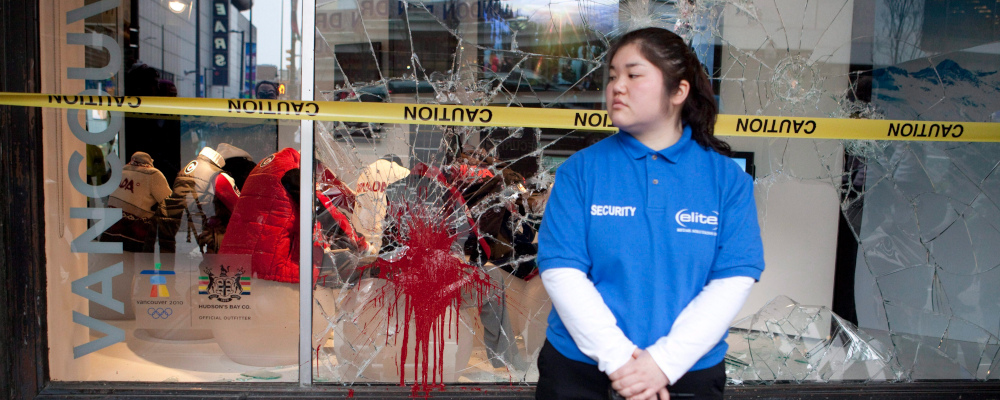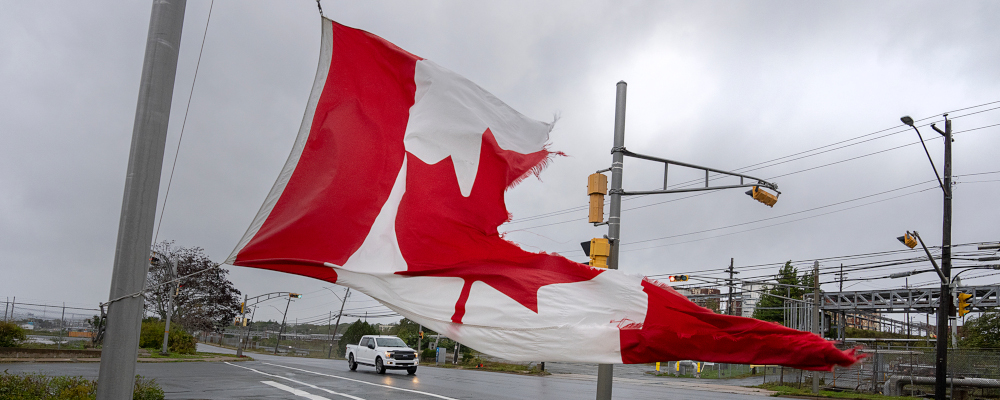Although the timing of the next federal election is unknown, it seems increasingly clear that the ballot question will be about whether voters believe that “Canada is broken.”
New polling conducted by Abacus Data on behalf of the consulting firm, Meredith and Boessenkool Policy Advisors, finds that just over 60 percent of Canadians today believe that the answer is yes—a 40 percent change since the 2021 election. The poll identifies various factors, including the cost of living (particularly food and fuel), housing, health care, immigration, and the prime minister himself, behind these gloomy public sentiments.
It prompts the question: what explains the marked change in the public’s mood over the 28 months since the last election?

The Liberals might claim that the answer lies with Conservative leader Pierre Poilievre’s effective communications. According to this line of argument, his simple yet flawed slogans have come to crystalize the idea that Canada is broken in the minds of a sizeable majority of the public.
One can see this interpretation in the actions and assertions of the government, including the prime minister’s claim last year that progressives need “better messaging” or new reports that Ottawa may be planning to “rebrand” the carbon tax. Yet interpreting the public’s anxiety and frustration as merely a communication problem misses the point.
The truth is there’s a profound sense of malaise in the country that Poilievre has channeled rather than catalysed. Although this sentiment has economic roots, it also reflects a deeper sense that the basic features of Canadian life aren’t functioning as well as they have in the past and that government action or inaction is largely responsible.
The chief economic cause is Canada’s poor record on GDP per capita. It has been stagnant for six years, actually declining for the past six quarters, and is not expected to recover pandemic losses until 2027 or later. Even if one believes that GDP per capita is an incomplete economic measure, it’s self-evidently suboptimal for households and the economy as a whole that it’s shrinking rather than growing. We’re effectively facing a lost decade for Canadian living standards.
A major factor behind these trends is the Trudeau government’s mismanaged immigration policy. We still don’t have an adequate explanation for what’s behind the unprecedented increase in the number of non-permanent residents entering the country. Was it a deliberate policy strategy? If so, why? And if wasn’t, how did it happen?
This past year shouldn’t be viewed as a one-off either. Virtually all of the biggest year-over-year increases in the number of non-permanent residents have during the Trudeau government. It’s hard not to conclude therefore that it has amounted to either a purposeful or inadvertent policy strategy that seems to have been pursued without any consideration of the externalities. As economist Ben Rabidoux recently put it: “If this government were actively trying to stoke anti-immigration sentiment, it would be indistinguishable from current approach.”
Then there’s been the more than a decade-high increase in violent crime, a 30-year high in the murder rate, and daily evidence of urban disorder, including growing empirical questions about the harm-reduction model to deal with drugs and substance abuse. Public safety, which had by and large been a dormant political issue for years, has suddenly reemerged as a key concern for Canadians—particularly in our major cities.
There are also new doubts about state capacity at the federal and provincial levels and whether we’re receiving good governance in exchange for our hard-earned tax dollars. The federal government’s employment footprint is now 40 percent larger under the Trudeau government and yet in parallel we’ve seen spending on third-party consultants grow by one-third since 2017 alone. This dissonance has naturally led to questions about what precisely we’re paying for or what we’re getting for it.
One doesn’t need to fixate on outright scandals—such as the sole-source contract with WE Charity or the so-called “ghost contracts” with GC Strategies—to reach the conclusion that something seems off in Ottawa. Maybe it’s the consequence of hybrid work or an inattention to implementation or too much focus on provincial and local matters for which federal officials lack pre-existing competencies. Whatever the explanation, mounting government failures represent a threat to the public’s trust and are doubtless a contributing factor to the overall sense of malaise.
Finally, there’s plenty of evidence that Canada’s role in the world has diminished under the Trudeau government’s watch. Although the government can point to different data on public spending on defence and national security that may make its record look better or worse, it seems incontrovertible that Canada is both more isolated and irrelevant than it has been in a long time. Our exclusion from key multilateral initiatives such as AUKUS and the Indo-Pacific Economic Framework is indicative of this alarming trend.
The totality of these inexhaustive examples reflects an inherent political challenge for the government. Any attempt to dissuade the notion that Canada is broken risks looking out of touch. Yet any concession that the country is broken effectively concedes culpability. The Trudeau government is now going about fixing its own mistakes—including cutting the number of international student visas—which, in a way, is itself an inherent admission of guilt.
Ultimately a judgement on whether Canada is broken is somewhat subjective and inevitably shot through with our ideological and partisan biases. But irrespective of how one comes down on this question, there are some interesting lessons from the Trudeau government’s complicated experience.

The biggest may be that Canadians aren’t particularly ideological. They’re really searching for quietly competent governance. They expect basic, reliable public administration and are prepared to punish governments that succumb to ideological excesses especially if it’s perceived to come at the expense of delivering on their basic needs.
Prime Minister Trudeau came to office with a message that essentially offered the aspects of the previous Harper government that Canadians liked, including an economic focus, a commitment to sound public finances, and a general moderation on matters of culture and identity but in a more compassionate and positive packaging. It basically amounted to Harperism with a smile.
Over time, however, the government seems to have misinterpreted its mandate to believe that Canadians had bought into a more full-throated progressivism including large-scale deficits and debt accumulation, a more active role for the state in the economy and society, and a growing nod to faddish trends in progressive identity politics.
Today’s consistent polling in favour of the Conservative Party represents in large part a correction to these perceived excesses and failures of the Trudeau government. When Canadians tell pollsters that Canada is broken, they’re not saying that they’re giving up on the country. What they’re really saying is they want to get back to pragmatic governance. They want a government focused on its core responsibilities on the economy, immigration, crime, public administration, and Canada’s role in the world. Getting back to basic is ultimately the best way out of the sense of brokenness that has befallen us.




